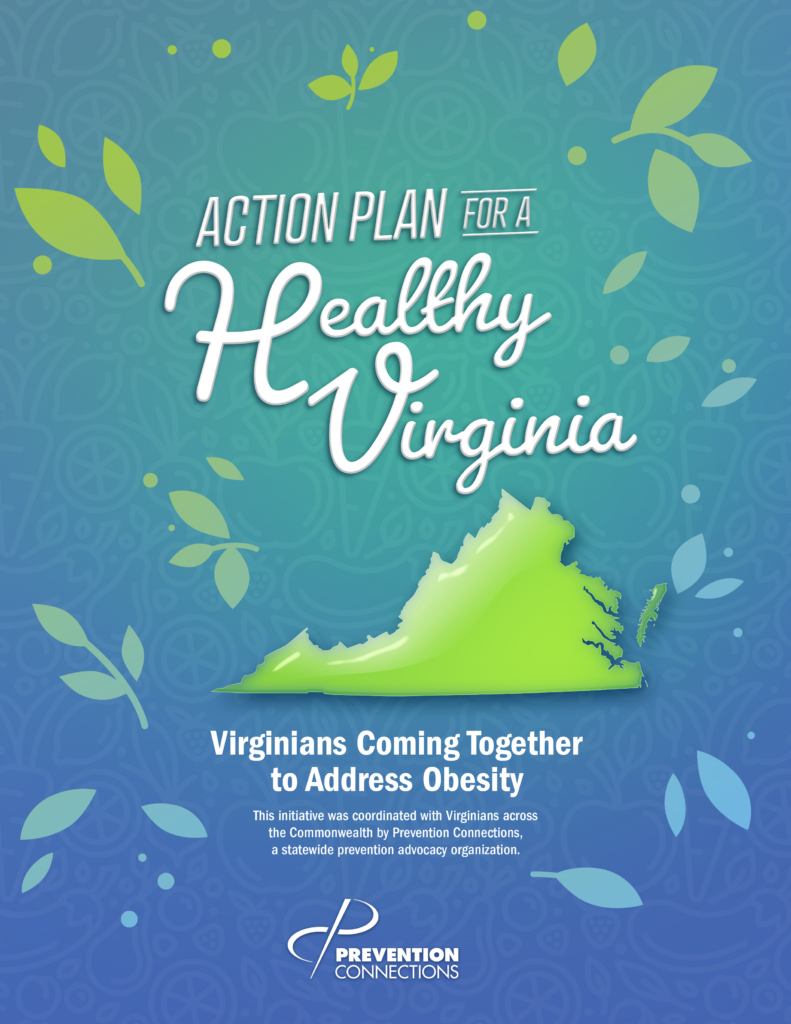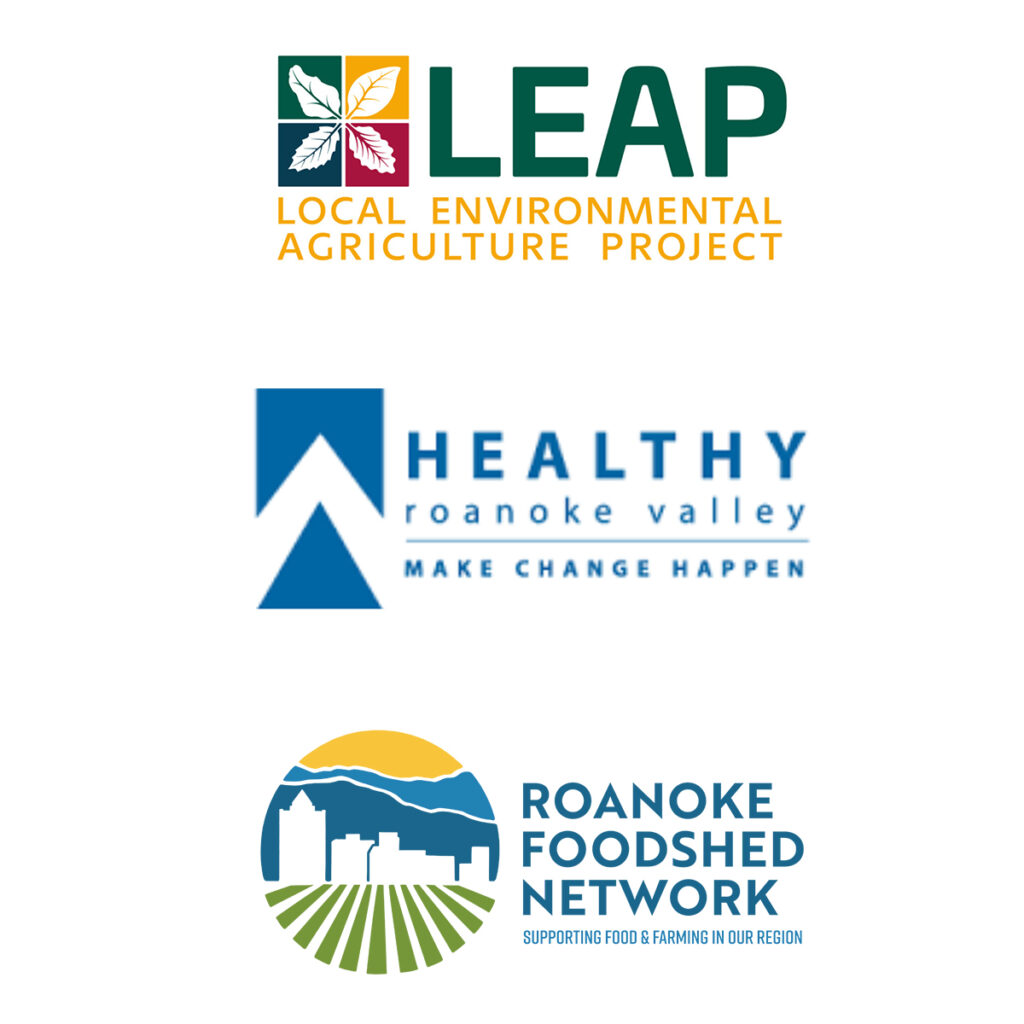Action Plan for a Healthy Virginia
Action Plan Strategy
Whether you are a parent, school official, health practitioner, faith community leader, employer or government leader, you are in a unique position to affect change. This guide is designed to help you create healthy environments and to help you actively lead, advocate for, and implement healthy weight programs in your homes, your workplaces and your communities throughout the state of Virginia.
Obesity is a disease that leads to other diseases. It shortens lives and increases health costs, including health insurance premiums. Overall, 28% of Virginia adults have obesity. Rates for African Americans and Latinos are higher than the state average at 41% and 29% percent, respectively. In comparison to other states, we rank in the top percentile, which means many other states have worse rates of obesity; however, we need to be proactive to address our needs here in the Commonwealth. Obesity rates in Virginia vary by community, ranging from 18% in some rural communities to 45% in our wealthier urban areas. Virginians need to continuously monitor the multiple factors (individual behaviors as well as environments where people live, learn, work, worship and play) that contribute to overweight and obesity among children, youth and adults.
Environments
In order to meet our healthy weight goals, it is important to focus on three levels of responsibility: individual, family and community. Supporting healthy weight in Virginia requires supportive environments that employ active strategies to make the healthy choice the easy choice. “
Environments:
- Colleges and Universities
- Early Child Care
- Faith-based and Other Community Organizations
- Food and Beverage Industry
- Healthcare
- Home
- Local Government
- Schools
- Workplace
In order to be successful, your plan should incorporate as many strategies as possible within your sphere of influence. If we work together across these sectors or environments and incorporate the eight core behaviors, more Virginians will benefit.
Behaviors
These behaviors are incorporated into the strategies suggested for the specific environments listed in the plan. To guide your selection, use strategies that address all eight behaviors in each environment you choose to influence.
Behaviors:
- Breastfeeding
- Eating Fruits & Veggies
- Stop Eating Empty Calories
- Move More
- Decrease Screen Time
- Get Enough Sleep
- Be Mindful
- Reduce Sugar Sweetened Beverages
Success Stories
Champions in Action Award
These behaviors are incorporated into the strategies suggested for the specific environments listed in the plan. To guide your selection, use strategies that address all eight behaviors in each environment you choose to influence.
Behaviors:
- Breastfeeding
- Eating Fruits & Veggies
- Stop Eating Empty Calories
- Move More
- Decrease Screen Time
- Get Enough Sleep
- Be Mindful
- Reduce Sugar Sweetened Beverages
Champions in Action Award
There are now 30 VFHY-funded community collaboratives across Virginia. Each collaborative drives policy, systems, and environmental changes that support at least one of the Action Plan’s eight healthy behaviors. To coincide with the re-release of the Action Plan, Prevention Connections has established the first ever Champions in Action Award, which provides flexible funding to collaboratives that are aligned with the Action Plan.
We are excited to announce our eight winners, who together will receive more than $100,000 to support their work:

Central Shenandoah Valley Office on Youth
Email Contacts:
garonsc@ci.waynesboro.va.us
deshongeg@ci.waynesboro.va.us newmang@ci.waynesboro.va.us

Greensville/Emporia Community Health Action Team (CHAT)
Email Contact:
kristinvaughan22@gmail.com
Download The Action Plan







